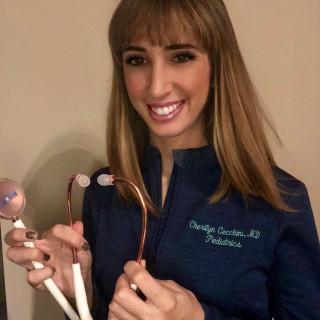
A few weeks ago, my program_ hosted a lecture series that focused upon patient safety. One lecturer truly caught my attention. He chose to highlight the fact that medical professionals have been trained since medical school that perfection, as a practicing physician, is necessary. We have been held to high expectations during our training and we hold ourselves to these impossible standards as we continue our courses in residency and, later, as doctors.
I am willing to venture that every student in that lecture hall undeniably supported this message. Furthermore, the lecturer went on to point out that most medical professionals fit neatly into the “type A” personality category. Audience members nodded in agreement as he delivered his description.
After this, he pointed out the importance of recognizing that perfection is an unattainable quality. He emphasized the importance that accepting the fact that we can never attain perfection. Furthermore, he stated that how accepting this reality will help to safeguard our patients and ensure enhanced their safety. Medical professionals were encouraged to work together to check and double-check one another’s doses, prescriptions and drug reactions when treating patients. Slowly, I began to recognize the importance of this message.
I now understand how easy it is to believe that you can achieve a level of near perfection when you have been striving for this characteristic for decades. Thus, one can justify minor patient errors by blaming others rather than taking ownership of a mishap. Such denial only leads to greater chances of error when managing patients. When running on so few hours of sleep and working twenty-four hour shifts, how can we truly expect that we will not succumb to error?
It was interesting that this lecturer encouraged us to dismiss the ideal of perfection and strive for teamwork and a system of checks and balances to achieve a higher standard of patient safety. I wonder if those in the medical field would be willing or able to let go of the idea of perfection when it has been continuously stressed throughout training.
If we could abandon our unrealistic perfectionism goal, understanding that we are human and prone to error, we can acknowledge that mistakes may happen, likely increasing our acceptance of help from others. By admitting that we are vulnerable to making mistakes, we likely will more willingly accept a system that involves checks and balances and inherently increase patient well-being.
Moving forward, I hope to remember this powerful message and to continue to accept help from others by acknowledging that perfection is an impossible ideal to achieve. We can keep patients safe by working to enforce a system that involves multiple members, who jointly consult to review each treatment decision. This model is something that should be accepted and adopted as healthcare continues to evolve.
Cherilyn Cecchini, MD is a pediatrician in Washington D.C.







